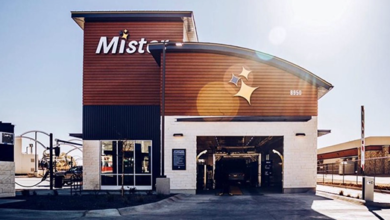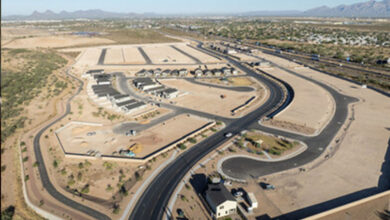
Pima County Gets $1 Million in Federal Funding to Aid Tourism, City of Gastronomy Efforts
The Pima County Department of Attractions and Tourism was awarded $1 million in federal grant funding to assist the regional tourism and hospitality industries as they continue to struggle through the pandemic.
A portion of the funding will be used to support Tucson City of Gastronomy, which will receive $250,000 to use in creating new events that promote Southern Arizona’s culinary culture, food festivals, and the designation of Tucson as a UNESCO City of Gastronomy.
“We know that culinary interests impact travel decisions and that since Tucson was named the first UNESCO Creative City of Gastronomy in the U.S., we have experienced significant local, national and international media attention, all helping grow our local economy through increased bed tax revenue, and growing food-related businesses and the industry as a whole,” said Diane Frisch, director of Pima County Attractions and Tourism. “The pandemic was devastating for so many of our local restaurants and food businesses, which represent a large part of our culinary identity and attraction to visitors. The development and promotion of new, successful events will be critical to the local industry’s recovery.”
The grant will require the creation of a new culinary festival that would offer a bilingual celebration of the history and culture of maize cultivation in Southern Arizona. The Pueblos del Maiz Fiesta will be a month-long event that coincides with related events in three other cities.
The Pueblos del Maiz Fiesta will include street food, cooking demonstrations, film screenings, music and other live performances, and additional events to promote Southern Arizona attractions, with the intention of growing the annual celebration into a destination event.
The grant also requires hiring of event planners to organize the events and collaborate with Visit Tucson on promotions and advertising.
“Tucson and southern Arizona’s creative food scene, based in our deep food history and multicultural food heritage, is no longer a secret,” said Jonathan Mabry, archaeologist and executive director of Tucson City of Gastronomy. “These new annual events and marketing campaign will amplify the benefits of the UNESCO designation for our tourism and hospitality sectors and make us even prouder of our community.”
Tucson City of Gastronomy is a nonprofit organization formed in 2016 to manage the UNESCO City of Gastronomy designation of Tucson and its Southern Arizona foodshed.
Tucson was designated a UNESCO Creative City of Gastronomy in 2015, the first such designation in the United States. The designation celebrates the region’s more than 4,000 years of continuous habitation and cultivation. The designation also recognizes the unique culinary culture of the region that maintains gastronomic connections with the past.
In addition, $750,000 in grant funding will be used for Visit Tucson to help promote tourism in the Southern Arizona region. Tourism-related businesses were hit especially hard during the pandemic as many people greatly reduced their travel and leisure spending.
The grant will assist in marketing the region to support the tourism and hospitality sectors. Visit Tucson will be charged with creating digital marketing campaigns in travel, tourism, leisure, and meetings publications with the purpose of generating travel interest in Southern Arizona and Pima County.
These campaigns will focus on area attractions, major events, the climate, open space, gastronomy, outdoor adventure recreation, dining, and lodging deals.
The campaigns will target the region’s top peak-season markets, in particular cities with non-stop routes to Tucson International Airport. Dates of placement of the campaigns will be timed to maximize attention during the region’s peak months for travel and tourism.
The Pima County Board of Supervisors at its Feb. 1 meeting approved the two grants, funding for which come from the Coronavirus State and Local Fiscal Recovery Funds, which the federal government established through the American Rescue Plan Act for state and local governments to help local economies recover during the COVID-19 pandemic.





